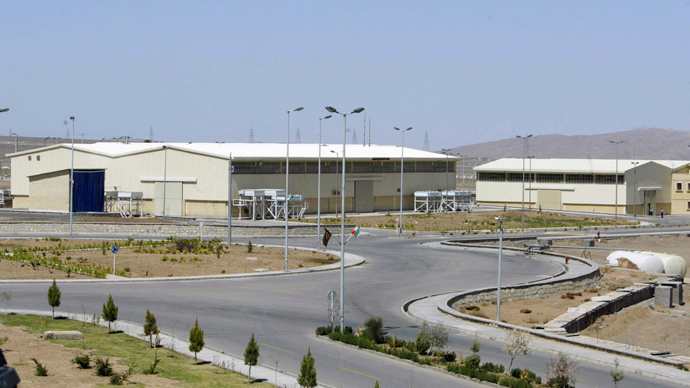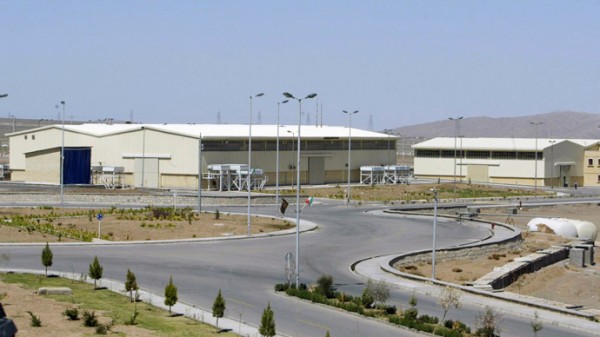
By: http://rt.com
Source: http://rt.com/
Washington and Brussels have announced suspension of certain sanctions against Iran as it halts its 20 percent enrichment of uranium. This marks the landmark nuclear deal between Tehran and the six world powers coming into force.
The European Council has announced that certain EU sanctions against Iran will be suspended starting Monday.
The decision will ease restrictions on trade in petrochemicals, precious metals and the provision of insurance for oil shipments. The ban on vessels to transport Iranian crude will also be lifted as part of the Joint Plan of Action, struck in November 2013 between Tehran and the so-called P5+1 (Britain, China, France, Germany, Russia and the US).
The suspension will last for a period of six months, during which time relevant contracts will have to be carried out, according to the press release.
The rest of EU sanctions will remain in place such as an arms embargo, all related technical and financial assistance, as will an asset freeze and a travel ban on targeted entities and persons.
The White House welcomed the Iranian nuclear curbs as an “unprecedented opportunity,” while a US official said that Secretary of State John Kerry welcomed the easing of EU sanctions on Tehran.
The US State Department also said that the upcoming negotiations with Iran about its nuclear program will be complex, but that the US is “clear-eyed” about the difficulties lying ahead.
Earlier in the day, Tehran announced a halt in its uranium enrichment program. Centrifuge cascades at Iranian nuclear plants were disconnected under the supervision of UN nuclear inspectors, who arrived in Iran over the weekend to check Iran’s compliance with the deal.
“In line with the implementation of the Geneva joint plan of action, Iran suspended the production of 20 percent enriched uranium in the presence of UN nuclear watchdog inspectors at Natanz and Fordo sites,” AFP cited Mohammad Amiri, director general for safeguards at Iran’s Atomic Energy Organization.
Apart from suspending enrichment of uranium to 20 percent – the level that’s close to the one needed for nuclear weapons production – Iran has also pledged to dilute half of the stockpile of the already enriched material.
A confidential report by the International Atomic Energy Agency (IAEA), obtained by Reuters, has confirmed that Iran “has ceased enriching uranium above 5 percent U-235 at the two cascades at the Pilot Fuel Enrichment Plant (PFEP) and four cascades at the Fordo Fuel Enrichment Plant (FFEP) previously used for this purpose.”
The same report states that Iran has stopped “conducting any further advances” to its activities at the Arak heavy-water nuclear reactor, which Western powers feared could produce plutonium to be used as bomb fuel.
According to the agreement Iran is freezing parts of its nuclear program in exchange for the easing of sanctions by the EU and the US, including lifting restrictions on Iranian exports of petrochemicals. Iran will also be able to import parts for its auto manufacturing industry and trade in gold and other precious metals.
The value of sanctions relief could amount to $7 billion, according to US government estimates.
Iranian President Hassan Rouhani is expected to try to persuade Western companies to invest in Iran at the World Economic Forum in Davos, Switzerland, on Thursday. Several European political and trade delegations have already visited the country in recent weeks, signaling a thaw in the EU-Iran relations.
The interim nuclear deal with Iran which came into force Monday will be in effect for six months, until the country and the P5+1 strike a permanent agreement, supposed to bring more stability to the volatile Middle East.
Achieving that won’t be easy though, as RT’s Middle East correspondent Paula Slier reports from Tel Aviv, where the government is the main opponent of the accord.
“What is not clear in how the US is going to maneuver its way forward,” Slier says. “It has a very fine line to walk. On the one hand you have Israel that continues to say that this was the deal with the devil. But on the other hand you have Iran, which Barack Obama is urging to come to the party, and he himself needs to show transparency and commitment while not alienating his friend, Tel Aviv, in the region.”
There are also threats for more sanctions coming from a group of US senators, who have been preparing legislation to enact new economic constraints in case no new deal is reached in six months.
Tehran has long been irritated by the plans voiced in the US Congress.
“Those in the United States who are pushing for more sanctions have to see what this policy has produced and whether it is worth risking. I don’t want to get engaged in a childish discussion on whether Iran is bluffing or not. They can test us,” Iranian Foreign Minister Javad Zarif told RT’s Sophie Shevardnadze earlier in January.




